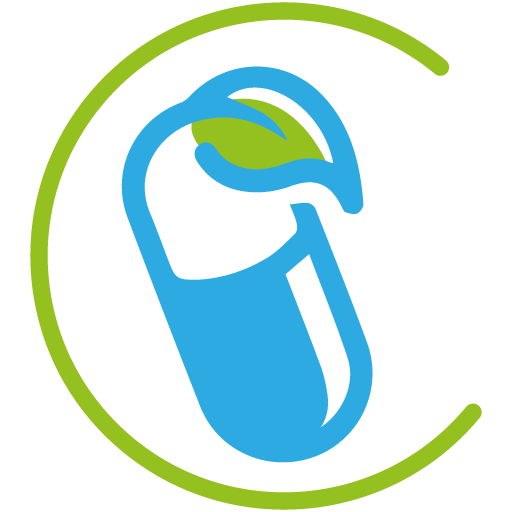These FDA-approved digital treatments are revolutionizing the field of mental health by offering a convenient and accessible solution for those suffering from depression. One such treatment is a mobile application that uses cognitive behavioral therapy (CBT) techniques to help individuals manage their symptoms and improve their overall well-being.
The app provides users with a range of features designed to support their mental health journey. It offers interactive exercises and activities that help users identify negative thought patterns and replace them with more positive and constructive ones. Additionally, the app provides users with a platform to track their mood, set goals, and monitor their progress over time.
What sets this digital treatment apart is its ability to personalize the user experience. Through a series of initial assessments, the app gathers information about the user’s specific symptoms, triggers, and goals. Using this data, the app tailors its content and recommendations to meet the individual’s unique needs.
Moreover, the app incorporates various evidence-based techniques to enhance its effectiveness. For example, it utilizes mindfulness exercises to help users cultivate a greater sense of self-awareness and reduce stress. It also incorporates elements of positive psychology, encouraging users to focus on their strengths and engage in activities that bring them joy and fulfillment.
The digital treatment also promotes social connection and support through its community feature. Users can connect with others who are going through similar experiences, share their progress, and offer encouragement and advice. This sense of community can be incredibly valuable, as it helps combat the feelings of isolation and loneliness often associated with depression.
Furthermore, the app’s user-friendly interface and intuitive design make it accessible to individuals of all ages and technological abilities. It can be easily downloaded onto smartphones or tablets, allowing users to access their treatment anytime, anywhere. This convenience eliminates barriers such as transportation or scheduling conflicts that may prevent individuals from seeking traditional therapy.
Overall, FDA-approved digital treatments for depression offer a groundbreaking solution for those seeking effective and convenient mental health support. By combining innovative technology with evidence-based techniques, these treatments have the potential to transform the way we approach and manage depression.
FDA-approved digital treatments have revolutionized the field of mental health care by harnessing the power of technology to deliver evidence-based interventions. These software-based interventions are developed by companies and healthcare professionals who have undergone rigorous testing and evaluation to ensure their safety and effectiveness. By obtaining FDA approval, these digital treatments have been deemed as reliable and trustworthy options for individuals seeking help in managing their depression symptoms.
One of the key advantages of FDA-approved digital treatments is their accessibility. Unlike traditional treatment methods that may require in-person visits to healthcare providers or clinics, these digital interventions can be accessed from the comfort of one’s own home. This accessibility makes them particularly beneficial for individuals who may have limited mobility, live in remote areas, or have difficulty accessing traditional mental health services.
Moreover, FDA-approved digital treatments offer a level of convenience that is unmatched by traditional treatment options. With just a smartphone or computer and an internet connection, individuals can access these interventions at any time and from anywhere. This flexibility allows individuals to incorporate the treatment into their daily lives without disrupting their routines or commitments.
These digital treatments are designed to be user-friendly and intuitive, making them suitable for individuals of all ages and technological backgrounds. They often feature interactive elements, such as self-assessment tools, educational materials, and therapeutic exercises, which help individuals gain a deeper understanding of their symptoms and develop effective coping strategies.
Furthermore, FDA-approved digital treatments often employ evidence-based therapeutic techniques that have been proven effective in managing depression. These techniques may include cognitive-behavioral therapy (CBT), mindfulness-based stress reduction (MBSR), and positive psychology interventions. By utilizing these evidence-based approaches, digital treatments aim to provide individuals with the tools and skills they need to effectively manage their depression symptoms and improve their overall well-being.
It is important to note that while FDA-approved digital treatments can be highly effective, they are not intended to replace traditional treatment methods entirely. They are meant to be used as a complement to existing treatment plans or as a standalone option for individuals with mild to moderate depression. It is always recommended to consult with a healthcare professional to determine the most appropriate treatment approach for individual needs.
How do FDA-Approved Digital Treatments Work?
FDA-approved digital treatments utilize evidence-based techniques and therapeutic approaches to address the symptoms of depression. These treatments often incorporate elements of cognitive behavioral therapy (CBT), mindfulness, and other proven therapeutic modalities. They may include interactive exercises, educational content, mood tracking, and other features to help individuals better understand and manage their depression.
One of the key advantages of FDA-approved digital treatments is their ability to provide personalized and adaptive care. These treatments often utilize algorithms and machine learning to tailor the intervention to the individual’s specific needs and preferences. By analyzing user data and feedback, the software can adjust its approach over time, providing a more tailored and effective treatment experience.
For example, the software may track the user’s mood patterns and identify triggers or patterns that contribute to their depression symptoms. It can then provide targeted interventions or coping strategies to help the individual manage those triggers more effectively. Additionally, the software may offer educational content and interactive exercises that are specifically designed to address the user’s unique challenges and goals.
Furthermore, FDA-approved digital treatments often include features that promote engagement and motivation. These can include progress tracking, goal setting, reminders, and rewards. By incorporating gamification elements, such as badges or points, the software can encourage individuals to actively participate in their treatment and stay motivated throughout the process.
Another important aspect of FDA-approved digital treatments is their accessibility. These programs can be accessed from the comfort of one’s own home, eliminating the need for frequent in-person appointments. This is particularly beneficial for individuals who may have limited mobility, live in remote areas, or have difficulty accessing traditional mental health services.
Moreover, FDA-approved digital treatments can provide ongoing support and resources even after the treatment program is completed. Many programs offer post-treatment resources, such as relapse prevention strategies, self-help tools, and access to support communities. This ensures that individuals have the necessary tools and support to maintain their mental well-being beyond the duration of the treatment program.
In conclusion, FDA-approved digital treatments for depression utilize evidence-based techniques and therapeutic approaches to provide personalized and adaptive care. By incorporating elements of CBT, mindfulness, and other therapeutic modalities, these treatments empower individuals to better understand and manage their depression. Through the use of algorithms and machine learning, the software can tailor the intervention to the individual’s specific needs and preferences. With features that promote engagement, accessibility, and ongoing support, FDA-approved digital treatments offer a comprehensive approach to addressing depression and promoting mental well-being.
6. Personalization
FDA-approved digital treatments for depression often offer a high degree of personalization. These treatments use advanced algorithms and machine learning techniques to tailor the program to each individual’s specific needs and preferences. By collecting data on the user’s symptoms, behaviors, and responses, the treatment can adjust and adapt over time, providing a more targeted and effective approach to managing depression.
The personalization aspect of digital treatments allows for a more individualized experience compared to traditional therapy or medication. It takes into account factors such as the individual’s unique symptoms, triggers, and goals, providing a treatment plan that is specifically designed to address their needs. This personalized approach can lead to better outcomes and a higher level of patient satisfaction.
7. Monitoring and Feedback
Another advantage of FDA-approved digital treatments is the ability to monitor and provide feedback on the user’s progress. These treatments often include features that track the user’s engagement, symptom severity, and overall well-being. This data can be shared with healthcare providers, allowing them to monitor the effectiveness of the treatment and make any necessary adjustments.
The monitoring and feedback provided by digital treatments can be particularly valuable for individuals who are unable to attend regular therapy sessions or have limited access to healthcare professionals. It offers a way to stay connected and receive support, even when face-to-face interactions are not possible.
8. Evidence-Based Approach
FDA-approved digital treatments are developed based on rigorous scientific research and evidence. These treatments undergo clinical trials to demonstrate their safety and effectiveness in managing depression symptoms. By adhering to evidence-based guidelines, digital treatments provide individuals with a reliable and validated approach to treatment.
Furthermore, the use of digital treatments allows for real-time data collection and analysis, enabling researchers to gather insights into the effectiveness of different interventions. This ongoing research contributes to the continuous improvement and refinement of digital treatments, ensuring that they remain up-to-date and aligned with the latest scientific findings.
In conclusion, FDA-approved digital treatments for depression offer numerous benefits, including accessibility, convenience, privacy, cost-effectiveness, personalization, monitoring and feedback, and an evidence-based approach. These treatments provide individuals with a flexible and effective way to manage their depression symptoms, complementing traditional forms of treatment and expanding access to care.
4. MoodGYM
MoodGYM is an interactive online program that provides cognitive behavioral therapy (CBT) for individuals experiencing symptoms of depression. It offers various modules and exercises that help users understand their thoughts and emotions, challenge negative thinking patterns, and develop effective coping strategies.
5. CBT-i Coach
CBT-i Coach is an app developed by the Department of Veterans Affairs (VA) that focuses on improving sleep quality and addressing insomnia, which often co-occurs with depression. The app provides tools and techniques based on cognitive behavioral therapy for insomnia (CBT-i) to help individuals establish healthier sleep habits and reduce sleep-related distress.
6. Happify
Happify is a digital platform that offers activities and games designed to promote mental well-being and reduce symptoms of depression. It incorporates evidence-based techniques from positive psychology and cognitive behavioral therapy to help individuals build resilience, manage stress, and cultivate positive emotions.
7. SuperBetter
SuperBetter is an online game that turns personal challenges, including depression, into a game-like experience. It encourages individuals to set goals, adopt power-ups (strategies), and connect with allies (friends and family) to overcome obstacles and improve their mental health. The game utilizes principles from positive psychology and cognitive behavioral therapy to enhance motivation and resilience.
8. Daylight
Daylight is a digital therapy program specifically designed to help individuals with depression. It combines cognitive behavioral therapy (CBT) techniques with mindfulness exercises to address negative thinking patterns, improve emotional regulation, and enhance overall well-being. The program includes interactive lessons, self-assessments, and personalized activities to support individuals on their journey towards recovery.
These FDA-approved digital treatments offer individuals convenient and accessible options for managing their depression symptoms. While they may not replace traditional therapy or medication, they can serve as valuable tools in conjunction with other treatment approaches. It is important for individuals to consult with healthcare professionals to determine the most appropriate treatment plan for their specific needs.
Souce: https://edition.cnn.com/2024/04/02/health/fda-rejoyn-depression-digital-treatment/index.html






